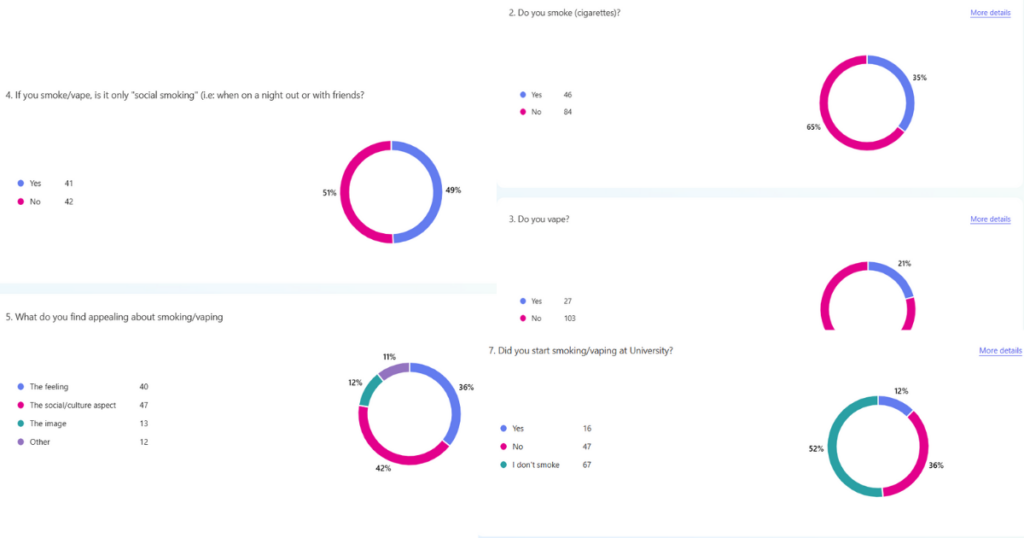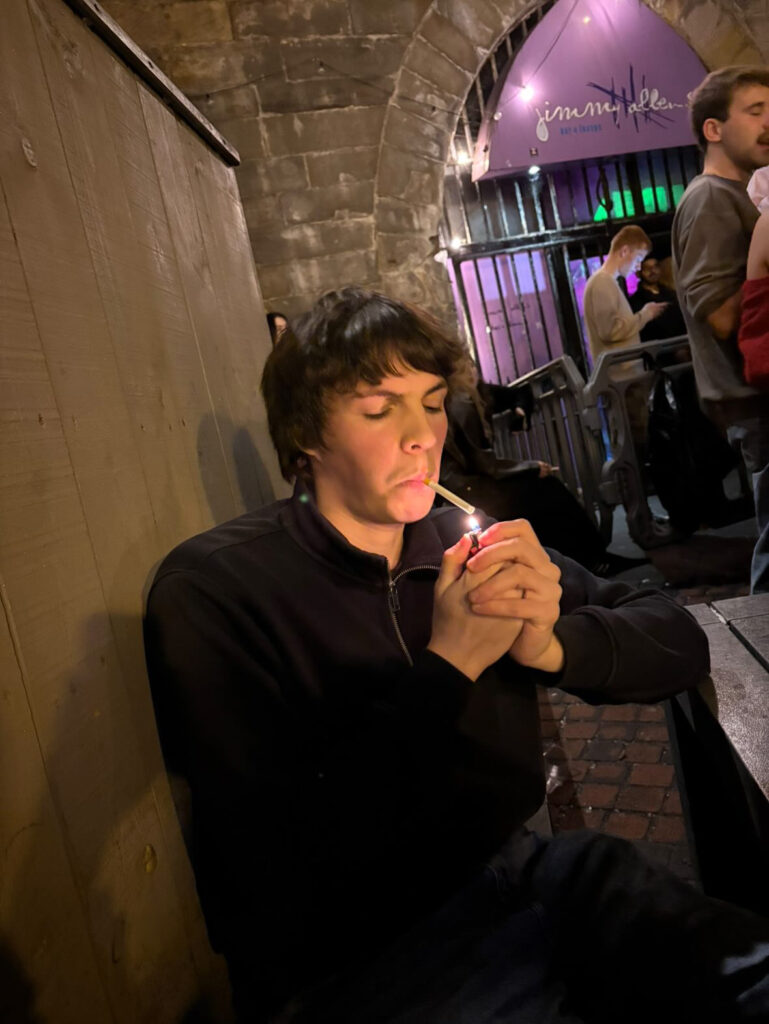
Do Durham students smoke more than the rest of the population? Here’s what we know
It looks like Durham students just love a social smoke
I’m a social smoker, and as many of my fellow social smokers may confirm, the habit involves constant begging from healthier friends, who are all desperate for me to quit.
All their well-intentioned pleading – which only ever seems to fall on deaf ears – has led me to wonder why on earth I keep up the habit, despite the evident health risks. Why am I doing this? What is the appeal? Where did my housemates hide my cigarettes? These are all things that run through my head in Jimmy’s smoking area each week.
So, naturally, I decided to find out whether my vice was an anomaly amongst Durham students, or whether I’m part of a bigger group of Durham smokers.
Durham students appear to smoke more than the national average

To get to the bottom of the mystery, The Durham Tab asked fellow Durham students about their smoking habits, and the answers were actually quite surprising.
Out of the 130 responses recorded, 35 per cent of students reported they smoked cigarettes, and 27 per cent reported they vaped. This might not sound like that much, but according to the Office for National Statistics, only 9.8 per cent of 18 to 24-year-olds in the UK are smoking (with similar stats for vapes).
Most Read
The Durham Tab’s survey also found that of the students who reported themselves as smokers, 49 per cent claim to be “social smokers”, with 25 per cent saying they started the habit whilst at uni. When asked what factors most attracted students to smoking, stats show the primary pull is “the social/culture aspect”, at 42 per cent, with “the feeling” coming in at a close second at 36 per cent. This is followed by “the image” at 12 per cent, with “other” reasons for a further 11 per cent.
Why are there so many smokers at Durham?

One less exciting reason for such inflated stats could be boiled down to volunteer bias in the survey. Volunteer bias basically means that those who choose to participate in a survey might have stronger opinions on the topic, more free time, or are generally more interested in the findings – this can lead to an unrepresentative data set.
But even so, the results are still more than three times higher than the national average for the 18-24 age group. So, what might the other causes be?
When students were asked to elaborate on some of the most popular motives for smoking – the “social/culture aspect”, “the feeling”, and “the image (a terrible reason by the way) – many respondents cited the appeal of having something to do with their hands, as well as pressure from peers to get involved.
So, if 49 per cent of Durham smokers surveyed say they only “social smoke”, we seem to have quite an eye-opening perspective on the smoking culture at uni. The social conduit appears, by far, to be the biggest factor, which, unfortunately, also happens to work as a conduit to lung cancer and heart disease.
What could it be about Durham specifically that encourages smoking?

As a self-proclaimed social smoker myself, I very much see my Durham experience reflected in the data, and it makes sense why Durham University would experience a higher number of smokers.
For one, when we have small but popular clubs like Jimmy’s and Klute, the smoking area does seem like a temporary reprieve from the crowds.
Secondly, it’s obvious that new university students, desperately trying to build relationships, will seek out ways to connect with someone or have an easy “in” to a conversation. Asking for a light or bumming a cigarette is an age-old way to make friends (even if that friend might not have the longest life expectancy).
Plus, given the Durham stereotypes, economic backgrounds could be a factor. The Durham student population is known for its higher proportion of IMD-10 area students (i.e. students from less deprived areas). This could mean that, with rising costs of nicotine, Durham students are more likely to be able to maintain the habit.
However, this theory doesn’t necessarily stand up to scrutiny. The Office for National Statistics says people in the most deprived areas are three times more likely to smoke, and, as we all know, correlation doesn’t mean causation.
So, what do we do with this information?
Reasons and explanations aside, Durham seems to have a large proportion of smokers.
The uni has a no-smoking policy and offers lines of support to quit smoking through the university’s Occupational Health Advisor and through the GP. Students (including me) should really make use of the resources in front of us and better our health.
But, since 25 per cent of Durham student smokers started at university, I think the more important task belongs to the wider Durham student community. Don’t be the friend who starts someone else on cigarettes. Be the friend who hides their pack and reminds them to prioritise their wellbeing over social gains.
Remember, Fresh, smoking is not cool.
For more of the latest news, guides, gossip, and memes, follow The Durham Tab on Instagram, TikTok, and Facebook.



















